They changed their professional cameras and voice recorders for weapons, standing up for the defense of Ukraine. On the occasion of the Day of the Armed Forces of Ukraine, the National Union of Journalists of Ukraine (NUJU) information service tells about fellow journalists who, at the beginning of a full-scale war, joined the ranks of the Defense Forces of our country. Their stories are not just stories about changing professions; they are evidence of the transformation that the entire Ukrainian society is forced to go through.
They recorded the war through the lenses of cameras and in their reports and taught others to do the same. Now, they have become direct participants in the fighting. Mykhailo Sharkov, Andrii Andriyenko, and Iryna Serebrianska are journalists who joined the ranks of the Armed Forces of Ukraine to defend the state not only with words but also with weapons.
“No photo will convey this horror,” says Mykhailo Sharkov
Before mobilization, Mykhailo Sharkov worked as a war correspondent for Apostrophe TV, regularly traveling to the hottest spots in Ukraine. His work required not only professional skill but also special courage and endurance. Working in the combat zone, he used protective equipment from the Kyiv-based Journalists’ Solidarity Center of the NUJU.
“The Union helped a lot,” recalls Mykhailo. “I was often at the front, so I had my own “armor” and helmet. But over time, the fabric of the plate carrier wore out, and it had to be repaired. And I was supposed to go to Kherson to prepare material for the documentary project “Museum of Ukrainian Victory…”
As a journalist, Mykhailo saw with his own eyes what it means to be a target for the russian military.
“Journalists are a familiar target for them, and the inscription, PRESS, is just a clarification of who exactly they are shooting at,” says Sharkov. According to him, the main reason for this attitude is that journalists show events as they really are and not as the russians would like to see them.
A year and a half of journalistic work in the combat zone on the front line has made adjustments to the journalist’s worldview.
“While still working as a journalist, I realized that no photograph, video or article will convey the horror, human grief, what really happens in war,” Mykhailo explains his decision to mobilize. “You return home from a business trip, start editing the story or processing the photos, and again experience this horror, the same feelings. And in the meantime, you receive a message that the person you were in the same trench with, about whom you were filming, is no longer there…”
After mobilization, life “changed 180 degrees.” Now, he is not connected with journalistic work in any way.
Military service is hard work, and everyone has to become a “universal soldier:” learn to cook, build, master different professions, operate different equipment, and shoot any weapon.
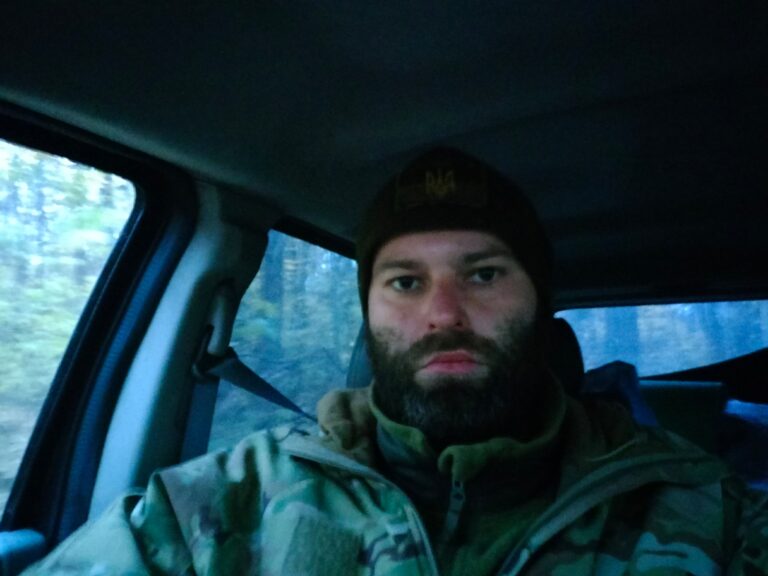
On the positive side, it was during the war that Mykhailo found a fighting brotherhood in which brothers and sisters make up a real family.
“These are people whom I trust not 100%, but 1,000% – and not only in battle but also in everyday life. These are the best people I have ever met,” he admits.
Previous journalistic experience turned out to be useful in military service.
“As a journalist, I was already a universal person, used to quickly learn new things and make fast decisions. As in the newsroom, where one had to take on difficult tasks with “round eyes” but still complete them, so in the army – the main thing is not to be afraid of difficulties and confidently go towards the goal,” says Mykhailo.
Service during the war completely changed his life priorities. What previously seemed important now seems like trifles. The most important value became life itself and the ability to live every minute of it with pride and happiness.
“You have to learn new things on the go,” says Andrii Andriyenko.
A special story is that of photojournalist Andrii Andriyenko, whose photographs were published by The Washington Post, The Guardian, The New York Times, Los Angeles Times, China Daily… Before mobilization, he worked for Associated Press and the Hong Kong news agency, SOPA Images, collaborating with such famous Ukrainian photojournalists as Efrem Lukatsky and Yevhen Maloletka.
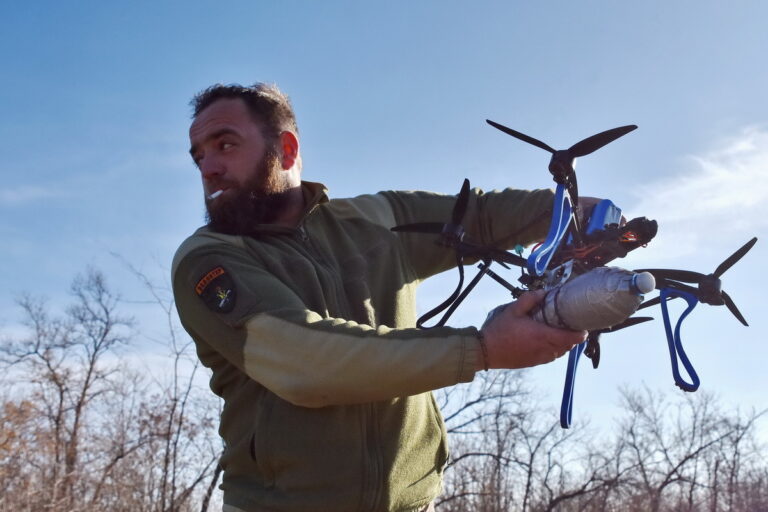
“I work for an international audience. Since my photos are seen by the whole world, I try to convey information about what is happening in our country in the most understandable photographic language,” Andriyenko said before mobilization.
After completing his training, Andriyenko arrived at the military unit in the Zaporizhzhia Region on November 7. Interestingly, in 1998, after graduating from the institute, he was not taken into the army due to health problems. Now, due to changes in legislation, these reasons are no longer an obstacle to service.
“After mobilization, life changed primarily psychologically – from a civilian, I turned into a soldier,” says Andriyenko. “More responsibility appeared. As a journalist, I had previously represented Ukraine at the international level, but now the responsibility has become even greater.
In the army, Andriyenko continues to conduct journalistic work, but in new conditions – as a press service employee.
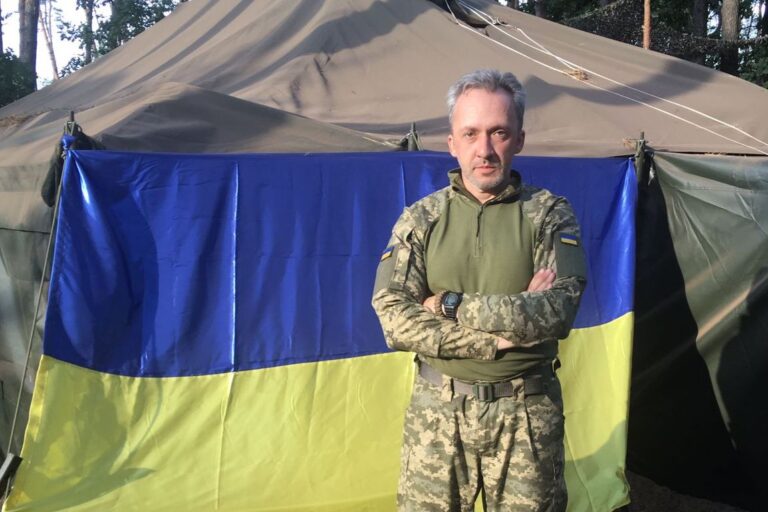
“You have to learn new things on the go. Previously, I was only engaged in photography, and now I have to shoot videos and write texts,” says Andriyenko.
An important nuance in the work has appeared – now he does not just go out to shoot with a camera and protective equipment but also has to be with a personal weapon since he is responsible for the safety of civilian colleagues whom he accompanies.
“We need to find a compromise between their desire to get the best possible material and security issues,” explains Andrii and adds that the longer the war lasts, the harder it is for the military to guarantee the safety of civilian media workers.
Thus, over the past six months, the situation with drones has become significantly more complicated.
“If earlier in urban areas, such as Bakhmut, it was possible to move more or less freely even during the day, now in the Zaporizhzhia Region, where there are many open spaces, it has become much more dangerous. It is especially difficult to work at night due to thermal imagers on drones, which easily detect groups of people…,” says Andriyenko.
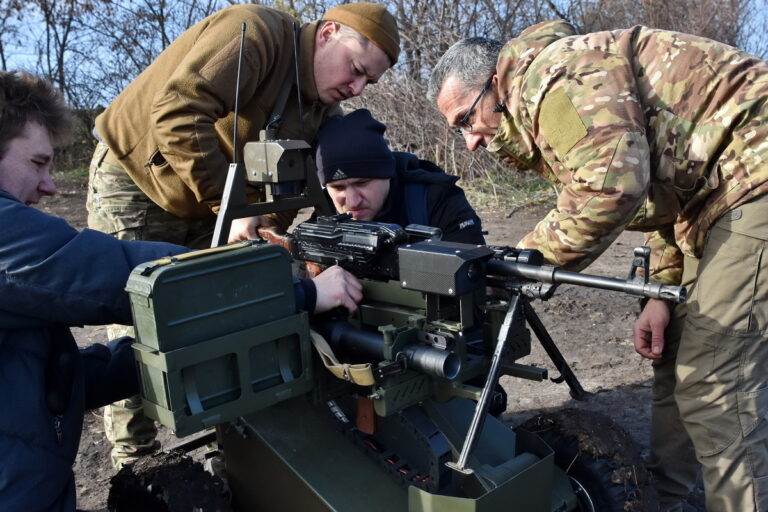
“I could not sit and wait calmly,” says Iryna Serebrianska
The story of journalist Iryna Serebrianska, professor of the Department of Applied Linguistics of Nizhyn State University, named after Mykola Hohol and Doctor of Philological Sciences, deserves particular attention. With the beginning of the full-scale invasion, she became a servicewoman of the Armed Forces of Ukraine.
“The place of my future was dictated by machine-gun fire and explosions on my street,” recalls Iryna at the end of February 2022. “This reality did not fit into common sense; there was a feeling of something incomprehensible and completely absurd. I could not sit and wait calmly for the sirens to stop wailing and console myself with the thought that it was about to end.
The decision to join the territorial defense was made on the second day of the war.
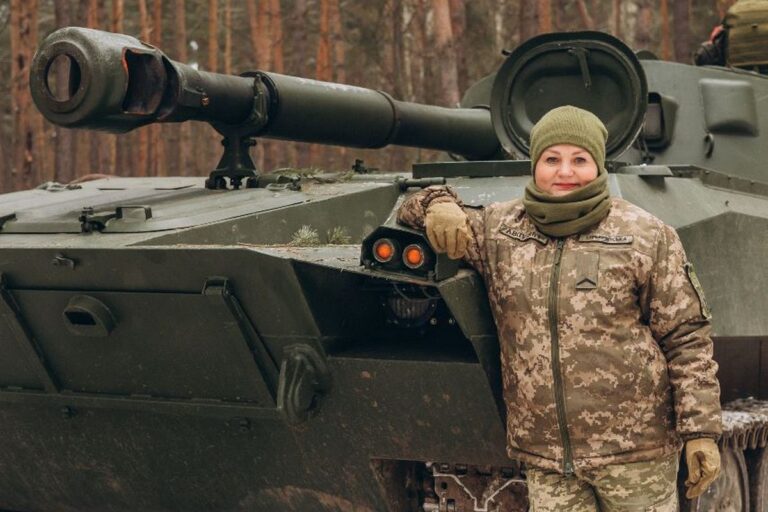
“There was fear, like every normal person, but there was no despair and numbness. The decision was final and could not be revised,” Iryna recalls. Of course, relatives were against it and in shock.
Then there was a difficult path…
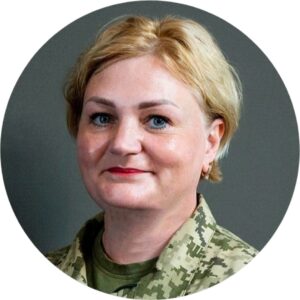
“There was everything – fear and anxiety for my student son (now he is also in the ranks of the Armed Forces of Ukraine; he voluntarily mobilized as soon as he graduated from university), for my husband-soldier, my brother-soldier, for my parents, for the whole family…,” says Iryna. “But my inner concentration increased significantly; my nerves were tense and, at the same time, clearly focused on the everyday details and realities of the war. I filled my inner emptiness with this – and I understood the correctness of the step I had taken.”
Iryna served as a military journalist and editor of the newspaper Army of Ukraine, covering current events of the russian-Ukrainian war and the history of our heroes. She embodied her life and journalistic experience, thoughts, emotions, and experiences in stories about the participants in the fighting, presented on the pages of the book Strategy of Confrontation, which was published in Ukrainian and English.
Now the professor-officer is working with students again, but in a different role: she ensures the quality of training of future officers in one of the leading military higher educational institutions of the country.
* * *
The stories of Mykhailo, Andrii, and Iryna show how journalistic skills – the ability to quickly navigate the situation, work in extreme conditions, analyze information, and make decisions – come in handy in military service.
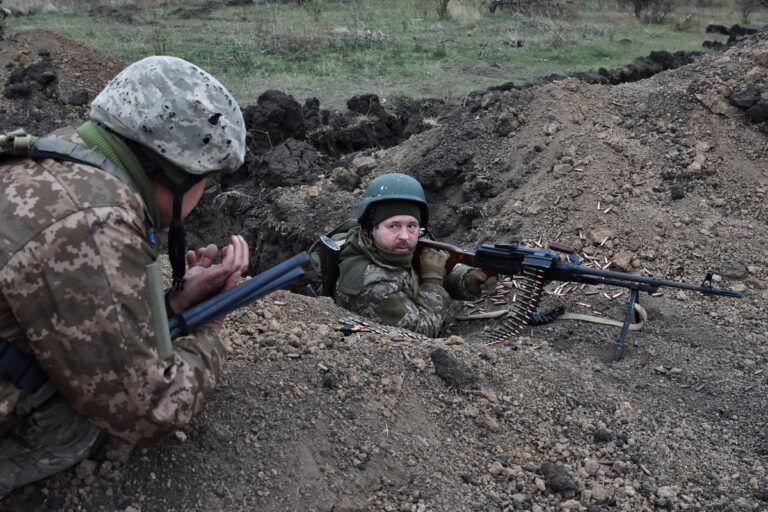
What next? Will there be a return to peaceful life and civilian journalism?
“I can’t imagine it yet…,” says Mykhailo Sharkov. “Maybe after some rehabilitation… but it’s too early to think about it now.”
He, like his colleagues, is confident in Ukraine’s victory. However, he admits that the price for it will be very high – it is already high and will be even higher…
Dear defenders of Ukraine! On the occasion of the Day of the Armed Forces of Ukraine, the NUJU congratulates all servicemen who defend our state. Special congratulations – to our colleagues-media workers who changed cameras and voice recorders for weapons, standing up for the defense of the Motherland. You are writing the modern history of Ukraine not only with words but also with your own heroic deeds. Your courage, professionalism, and dedication bring our Victory closer. We wish you good health, indomitable spirit, the reliable shoulder of your comrades by your side, and a speedy return home with Victory! Glory to the Armed Forces of Ukraine!
Journalists are important!
NUJU Information Service

 THE NATIONAL UNION OF
JOURNALISTS OF UKRAINE
THE NATIONAL UNION OF
JOURNALISTS OF UKRAINE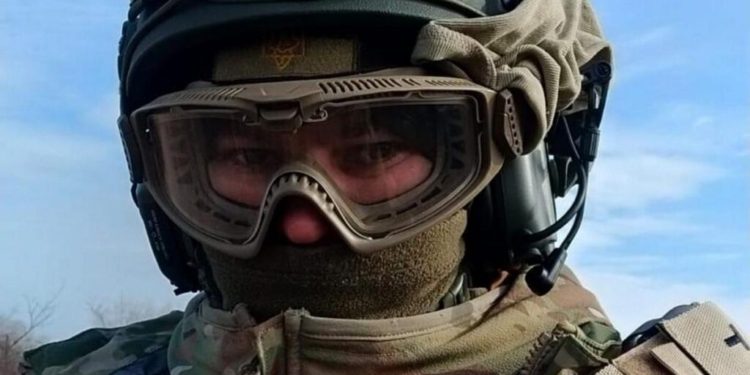
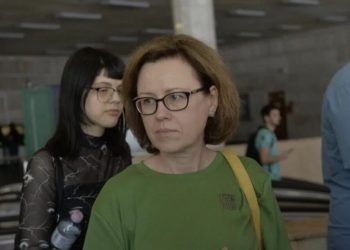
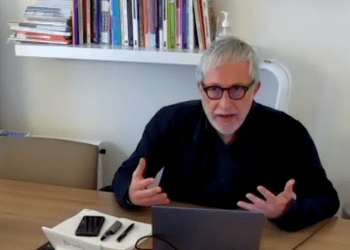
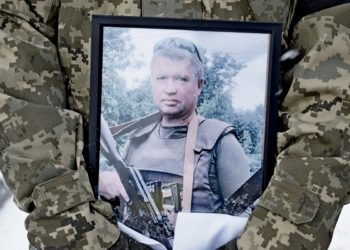













Discussion about this post